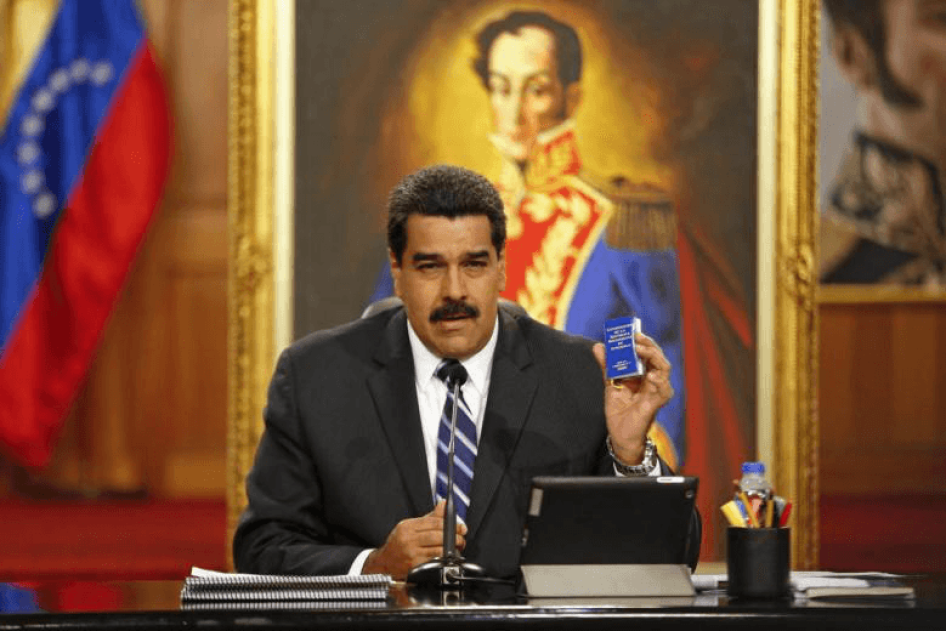If President Nicolás Maduro goes ahead with his plan to elect members for a Constituent Assembly on July 30, he will effectively set the stage to perpetuate himself in power, at the expense of Venezuelan democracy and the human rights of the Venezuelan people.
Maduro has said that the Constituent Assembly is what Venezuela needs to restore “peace.” It isn’t. At best, it’s a terrible distraction from Venezuela’s pressing needs, which include ending the repression, releasing political prisoners, bringing those responsible for abuses to justice, holding free and fair elections, restoring judicial independence and the powers of the National Assembly, and allowing sufficient international aid into the country. Most likely, it’s the key to a long-lasting dictatorship that must be stopped before it’s too late.
Instead of holding a plebiscite to ask voters whether they approved of his plan to convoke a Constituent Assembly, as experts generally agree the constitution requires, he went ahead and did it through a presidential decree, with the support of his obedient Supreme Court. When the opposition asked Venezuelans to express their opposition to the proposal in an informal July 16 plebiscite, more than seven million braved long lines and the threat of violence to do just that.
What’s much more important than all of that is the frighteningly wide and vaguely defined powers the Constituent Assembly would have. Maduro’s decree says, for example, that the Constituent Assembly is an initiative “to contain increasing political violence” through a “reorganization of the state that recaptures the constitutional principle of cooperation of public powers.” This seems like an almost Orwellian way to describe the government’s ongoing assault on the little remaining independence and power of some government institutions such as the opposition-led National Assembly or the Attorney General’s Office.
Other proposed objectives, he said, are to “expand the powers of the justice system to eradicate impunity” for crimes including “crimes against the Fatherland,” “terrorism,” and “foreign interference,” to protect Venezuela from “foreign intervention.”
The broad powers granted to the Constituent Assembly by Maduro’s decree—for an indeterminate amount of time—could open the door to actions that go far beyond drafting a new Constitution. It would be able to:
- Stop the National Assembly from operating. Maduro’s decree states that the Constituent Assembly would start meeting 72 hours after its members are elected inside the building where the opposition-led National Assembly holds its sessions. There’s every reason to worry that this signals an intention not only to displace the National Assembly but to suspend its operations.
- Eliminate parliamentary immunity. In a country where with more than 400 political prisoners and where military courts have prosecuted more than 460 civilians, many for treason or rebellion, this measure would make it easier for Maduro to implement the “Special Emergency Justice Plan” he announced on July 18. The plan, to be carried out by the Supreme Court, military courts, the police, and a deputy attorney general appointed by the Supreme Court in violation of constitutional norms, aims at “search[ing] and captur[ing] all conspirators” and imposing “exemplary sanctions.”
- Remove the attorney general from office. A former government loyalist, Attorney General Luisa Ortega Díaz has since late March shown a willingness and ability to hold the Maduro administration accountable for abuses and anti-democratic tactics. That’s precisely what the Constituent Assembly might want to stop.
- Indefinitely suspend elections. Elections for governors, which were supposed to take place in 2016, are now scheduled for December 2017. Elections for other local authorities should take place in 2017. Presidential elections should take place in 2018.
This is not mere speculation. The powerful Chavista politician Diosdado Cabello, a candidate for the Constituent Assembly, has already vowed to eliminate parliamentary immunity and remove the attorney general. Since the political opposition has decided not to participate in the July 30 elections to protest the government’s initiative, there will be no resistance from within the Assembly to any of these measures.
To stop the Constituent Assembly from moving forward, the Venezuelan opposition has called for a two-day national strike this week, which has the support of key unions, and a massive demonstration for Friday. For this pressure to have any hope of succeeding, it needs the support of key international leaders, who should redouble the pressure on the Venezuelan government—not only by pursuing all available multilateral diplomatic strategies, but also by adopting targeted sanctions against government officials linked to serious human rights abuses.









